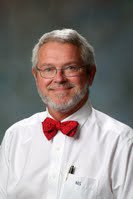Responsibility
Encore
Responsibility is a tricky thing to learn. It’s even trickier to teach!
Most educators will underscore the need for their students to learn responsibility regardless of the grade level or subject. Although it’s rarely seen in curriculum benchmarks, this goal (a combination of self-reliance and maturity) is woven into the fabric of schools from coast to coast. Generations of parents have depended upon schools to reinforce this value, promoted at home by chores or other activities that have a beneficial effect on family life. In a nutshell the responsibility creed would be: I need to learn to care for myself and others. A common model for responsibility is the image of a triangle, where the sides are represented by child, parent, and teacher.
But as Bob Dylan sang, “the times, they are a-changing.” Some recent research shows that only around 65% of school-age children help out around the house. The extent of their help naturally varies, but it takes no leap of the imagination to understand that today’s children, with the exception of farm children or those from a similar home life, are contributing less time and energy to chores than their parents and grandparents did.
So if 35% of children have no chores at all, and those who do have chores are contributing less, what might manifest itself in the classroom? Several unpleasant images immediately come to mind, notably the tendency of students to become huffy (miffed, resentful, argumentative or shifting blame) when a teacher holds them accountable. Over the years I have noticed a corollary shift in parental attitudes. Many parents now are acting as their child’s “agent” rather than as a parent partnering with the teacher. This shift was subtle, and I don’t believe that it was ever the intention of parents to assume this new role. But it’s here and the role of the agent is to get the client a better deal.
On several levels this approach is wrong-headed, but the greatest threat is to the child. The process of schooling, and education in general, is not about getting a proxy deal. It’s about stimulating the intellect and spirit. There is no doubt that when the three sides of the educational triangle – child, parent, teacher – are working in concert, this goal can be accomplished. Remove the child from the equation, and you create a life of dependency.
The question before us is obvious: are we acting as agents or parents? If we keep our eyes open we can restore the triangle to its appropriate equilateral design. Our children’s adult lives are in the balance.
“Henry G. Selby, headmaster of All Saints’ Episcopal School in Morristown, is a popular speaker at seminars, conferences, civic events, and professional development meetings. He would be delighted to speak at your next meeting. Please call the school for more information.”












